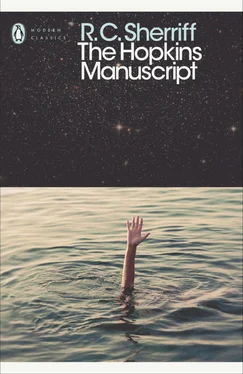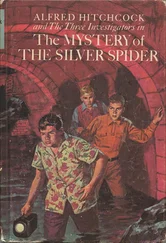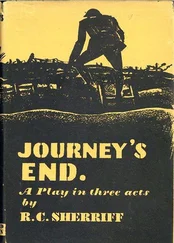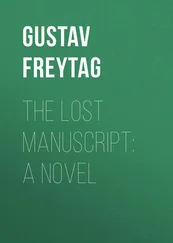Роберт Шеррифф - The Hopkins Manuscript
Здесь есть возможность читать онлайн «Роберт Шеррифф - The Hopkins Manuscript» весь текст электронной книги совершенно бесплатно (целиком полную версию без сокращений). В некоторых случаях можно слушать аудио, скачать через торрент в формате fb2 и присутствует краткое содержание. Год выпуска: 2018, ISBN: 2018, Издательство: Penguin Books, Жанр: sf_postapocalyptic, humor_satire, на английском языке. Описание произведения, (предисловие) а так же отзывы посетителей доступны на портале библиотеки ЛибКат.
- Название:The Hopkins Manuscript
- Автор:
- Издательство:Penguin Books
- Жанр:
- Год:2018
- ISBN:978-0-241-34908-3
- Рейтинг книги:4 / 5. Голосов: 1
-
Избранное:Добавить в избранное
- Отзывы:
-
Ваша оценка:
- 80
- 1
- 2
- 3
- 4
- 5
The Hopkins Manuscript: краткое содержание, описание и аннотация
Предлагаем к чтению аннотацию, описание, краткое содержание или предисловие (зависит от того, что написал сам автор книги «The Hopkins Manuscript»). Если вы не нашли необходимую информацию о книге — напишите в комментариях, мы постараемся отыскать её.
The Hopkins Manuscript — читать онлайн бесплатно полную книгу (весь текст) целиком
Ниже представлен текст книги, разбитый по страницам. Система сохранения места последней прочитанной страницы, позволяет с удобством читать онлайн бесплатно книгу «The Hopkins Manuscript», без необходимости каждый раз заново искать на чём Вы остановились. Поставьте закладку, и сможете в любой момент перейти на страницу, на которой закончили чтение.
Интервал:
Закладка:
‘If this “glancing blow” occurs, the chances of survival of life upon the earth are dependent upon the severity of the impact. If it is no more than a slight “graze” then we may reasonably hope that life, even some fragment of human life, might survive.
‘A development of this “grazing theory” is that the impact of the moon against the earth’s surface may force the earth itself out of the path that it has followed from the dawn of time. In this case it is obvious that one of two things must happen. We shall either travel towards the sun or away from it. If we travel towards the sun we shall no doubt be drawn into it and become part of the great furnace which we have enjoyed so frequently from a comfortable distance. If we travel away from it, then we shall suffer a period of darkness and cold until possibly we may join up with another of the many millions of suns in the universe, become its satellite, and life may start from the beginning once again.’
‘Thank you, sir,’ said Dr Perceval. The old man struck a match and the silence was broken by the gentle popping of his lips as he drew at his pipe.
A tall, stooping man, whose name I think was Wilkins (although I cannot be quite sure), rose from his seat near the door.
‘If the best happens, and the earth receives such a slight graze that its crust remains unbroken, can the President give us any indication of its effect upon the atmosphere – the tides of the sea, etc?’
‘We cannot predict that with the remotest hope of certainty,’ replied the President. ‘But we can assume that the shock would displace the earth but not its atmosphere. Crudely stated, the earth would be jolted out of the skin of air that loosely surrounds it – but that skin would return and settle evenly around the earth again. We should suffer tornado and flood upon two sides of the earth as it slides out of its atmosphere, and a temporary disappearance of air upon the other sides. But I repeat that everything would depend upon the nature of the impact.’
To my surprise I saw my stout neighbour rise to speak.
He had appeared so completely stagnant and devoid of intelligence that I had not believed him capable of understanding a word of what was going on. But when he spoke his features suddenly became alert and mobile, and his voice was deep and cultured.
‘Mr President,’ he said. ‘I agree – I am sure we all agree – upon the wisdom of keeping this matter within the knowledge of a selected few. But you spoke of a faint hope of survival.
‘Cannot something be done – even if only to increase this hope by a tiny fraction?
‘I am thinking of dugouts. It may seem ludicrous to suggest such a puny endeavour, but assuming this “graze” to be so slight as to permit the earth to survive, would it not be worth constructing very deep dugouts, reinforced with steel and concrete, supplied with oxygen and other necessities of life for several days while conditions upon the earth’s surface may possibly return to normal?’
When the President rose to reply there was a slight smile upon his face – the first smile that I had witnessed in the whole of that strange meeting.
‘I am glad to speak of something constructive and hopeful after so much gloom. I am glad to say that this suggestion has already been put into action with the greatest energy. The engineering corps of all armies are at work upon subterranean strongholds, built with the utmost strength and fitted with every possible protection against shock, flood and lack of air. The positions of these strongholds have been selected with scientific care and are being built in secret. The officers and men employed believe the dugouts to be against air raid and gas attack from foreign powers. The number of people to be protected in this way cannot be more than the smallest proportion of our population, and the selection will of course rest with the Government.’
A few other questions were put and answered, but I do not remember them as being of much importance. A fat man with a grating voice began a rambling speech to the effect that the Government must not be allowed to take political advantage of the dugouts by leaving all persons of socialist leanings outside. He went on to suggest that no person who believed in otter hunting should be allowed in the dugouts, but the President pulled him up sharply and asked if any further questions were desired.
Somebody wanted to know whether the approach of the moon had anything to do with the strange colour of the sunsets that we had recently observed, but the President was unable to give a definite reply. I began to notice an increasing restlessness in the audience, as if the strain of the meeting was bringing a reaction that cried for movement and freedom. The President announced that the Society would meet in two weeks’ time, instead of the normal month, and that he would then report anything further that had been imparted to him through official channels. It was just after seven when he closed the meeting and I think that the adjournment for coffee and cakes in the ante-room was the weirdest experience of my life.
I suppose we were all affected, far more deeply than we realised, by an intense, overpowering reaction. Or possibly it was the result of the President’s reply to the last question of the evening when he had stated that, upon present indications, the moon would strike the earth upon the evening of the 3rd May at about eight o’clock.
The 3rd of May! Seven months ahead! One and all of us, I think, experienced the exultant, irrational joy of a man condemned to die at dawn, who learns at the last hour that his execution has been postponed for seven months. In the course of those first calm, terrible words of Professor Hartley’s every one of us had felt the awful imminence of death, and in that last reply had come the sweet breath of postponement. The fact that this would only mean seven months of agonising suspense occurred to none of us in our utterly unbalanced condition of mind.
Whatever the reason, I only know that, as we rose and pushed back those hard wooden chairs and trooped into the refreshment-room, a low murmur began – a murmur that was pierced by a sudden laugh – a sudden babble and buoyancy of spirit that gave every appearance of intense well-being and happiness.
You would not have recognised those pale, drawn faces and haggard eyes of ten minutes ago. There came the familiar rattle of the shutter that ran up to reveal Mrs Ayling behind the big brass coffee urn in the recess that was called ‘The Bar’. True to tradition the Committee gathered around to pass out the coffee and plates of sandwiches and buttered scones. There was a great deal of laughter over the fact that there were not enough coffee-cups to go round – our economical Committee having failed to visualise the possibility of every member turning up at the same meeting!
A member shouted out: ‘What about a vote of censure upon the Committee!’, and there was such a shout of laughter that you would have thought the best joke of the century had been made!
I believe what really gave us this extraordinary feeling of bravado was the self-esteem that every one of us was conscious of. We were amongst the chosen few: we were members of a little band of intelligent men who alone amongst millions had been entrusted with this unearthly, awe-inspiring secret.
It may seem a little childish, but I think all of us began to show off deliberately before the unknowing Mrs Ayling as she kept twisting and untwisting the tap of the coffee urn. Here before us was the first member of that mighty, ignorant public that did not share, and must not share, our secret.
I observed one member, with an eye upon the old lady, talking loudly and elaborately about the chess tournament at Hastings – another held forth upon the coarse flavour of American tomatoes and another upon yesterday’s fog. I am sure that all our conversation was a lot further away from the moon than the moon, at that moment, was away from us.
Читать дальшеИнтервал:
Закладка:
Похожие книги на «The Hopkins Manuscript»
Представляем Вашему вниманию похожие книги на «The Hopkins Manuscript» списком для выбора. Мы отобрали схожую по названию и смыслу литературу в надежде предоставить читателям больше вариантов отыскать новые, интересные, ещё непрочитанные произведения.
Обсуждение, отзывы о книге «The Hopkins Manuscript» и просто собственные мнения читателей. Оставьте ваши комментарии, напишите, что Вы думаете о произведении, его смысле или главных героях. Укажите что конкретно понравилось, а что нет, и почему Вы так считаете.












